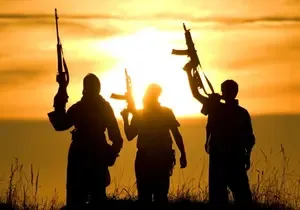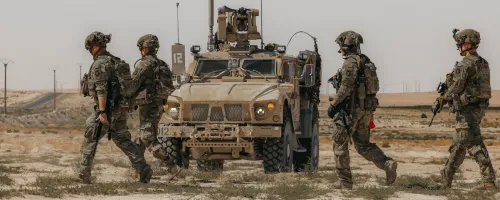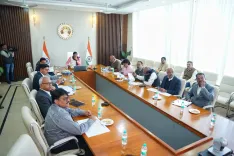How Did 14 Pakistani Soldiers Lose Their Lives in Balochistan?

Synopsis
Key Takeaways
- 14 Pakistani soldiers were killed in Balochistan attacks.
- BLA claimed responsibility for the assaults.
- The Pakistani army is viewed as a mercenary force by the BLA.
- The conflict highlights issues of marginalization and exploitation.
- Balochistan's insurgency is fueled by local grievances.
Balochistan, May 8 (NationPress) - A tragic escalation in violence has resulted in the loss of at least 14 Pakistani army personnel due to two separate assaults attributed to the Baloch Liberation Army (BLA) in the regions of Bolan and Kech, highlighting the worsening insurgency in this troubled province.
The first attack involved the BLA's Special Tactical Operations Squad (STOS), which executed a remote-controlled IED assault on a military convoy in the Shorkand area of Mach, located in Bolan district.
This powerful explosion reportedly claimed the lives of all 12 soldiers on board, including Special Operations Commander Tariq Imran and Subedar Umar Farooq. The military vehicle was entirely obliterated in the blast.
Later that same day, BLA militants targeted a Bomb Disposal Squad of the Pakistani Army in the Kulag Tigran area of Kech district.
A remote-controlled IED detonated around 2:40 p.m. while the squad was engaged in a clearance operation, resulting in the deaths of two additional personnel.
BLA spokesperson Jeeyand Baloch released a statement claiming responsibility for both attacks and criticized the Pakistani army, branding it a mercenary force.
He stated, "Those who label the Baloch Liberation Army as a foreign proxy must recognize that the Pakistani army is itself a mercenary group, fueled by Chinese investments and Papa Jones."
He continued, "An army that shifts its allegiance according to the changing wishes of its masters is not a national army, but a commercial entity. The freedom fighters of Baloch land will intensify their attacks on this mercenary occupying force."
The recent strikes illustrate the enduring and complex conflict in Balochistan, where separatist factions have long accused the Pakistani state of marginalization, economic exploitation, and systemic human rights abuses.
Despite its wealth of natural resources, local communities continue to grapple with poverty, underdevelopment, and political exclusion, with benefits allegedly siphoned off to the federal government and foreign investors, particularly China.
Many locals perceive the heavy military presence in Balochistan not as protective but as oppressive, further deepening resentment and fueling the insurgency.
The disconnect between Baloch nationalist aspirations and Islamabad's policies remains a significant source of instability in the region.
A similar high-profile incident occurred in March when the BLA hijacked a train carrying over 400 passengers in Balochistan's Kacchi district, showcasing the group's capability.
Security forces in Pakistan are increasingly targeted by separatist factions like the BLA, which often focus on personnel from Punjab and other provinces, accusing them of occupying Baloch territory.
The provinces of Balochistan and Khyber Pakhtunkhwa remain among Pakistan's most volatile areas, experiencing a rise in assaults on military and paramilitary forces.
On the other hand, Pakistan asserts that groups like the BLA receive support from across the border in Afghanistan. Islamabad has accused the Taliban regime of offering shelter, funding, and logistical support to anti-Pakistan elements, allowing them to conduct cross-border terrorism and incite unrest within Pakistan’s borders.










